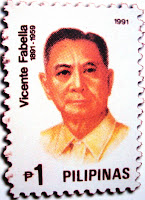The Patriotic Song of Russia (In use: 1990-2000)

Russia's first anthem adopted upon independence from the Soviet Union, "Patrioticheskaya pesnya", (The Patriotic Song) was a piece by the national hero of composing, Mikhail Glinka. Glinka's works were also no stranger to consideration as national anthems for Russia, for example during the spring of 1917 when a new national anthem was needed after the last czar abdicated, some people proposed that any work from Glinka's opera "A Life for the Czar" be considered as a new national anthem. This piece may have been intended for that work.
The notes for this piece was found in the papers of Glinka in the late 19th century. Written in the same format as the score for "A Life for the Czar" (known in Soviet times as "Ivan Susanin"), it was suggested it could have been intended for this opera. However, the title that Glinka gave it, "Motif de Chant Nationale" suggests it could have been written as an entry for a national anthem contest, possibly for the national anthem of 1833 (which was around the time that this opera was being written). It has also been pointed out that the tune appears in a 16th century Polish hymn, and thus may not be original to Glinka. The title "The Patriotic Song" was given to it in 1944 when the melody was arranged for the "All-Union Radio Committee of the USSR".
In the spring of 1990, the government of the Russian SFSR (within the USSR) debated what should be the republic's anthem (it was the only one of the Soviet Republics to never adopt a national anthem), and Glinka's melody was unanimously adopted in November of that year, and consequently became the anthem of an independent Russia when independence was proclaimed just over one year later.
There was some complaint among the citizens that there was no lyrics to the anthem, and so there was a competition in late 1999 to compose words for the anthem. The contest was won in November 1999 by Victor Radugin with his poem "Славься, Россия!" "Slav'sya, Rossiya!" (Be glorious, Russia!), but, upon President Yeltsin's resignation at the end of the following month, the words never became official, as the new president favoured the old Soviet melody, which was later adopted.
The stamp above features Mikhail Glinka issued in 1954






